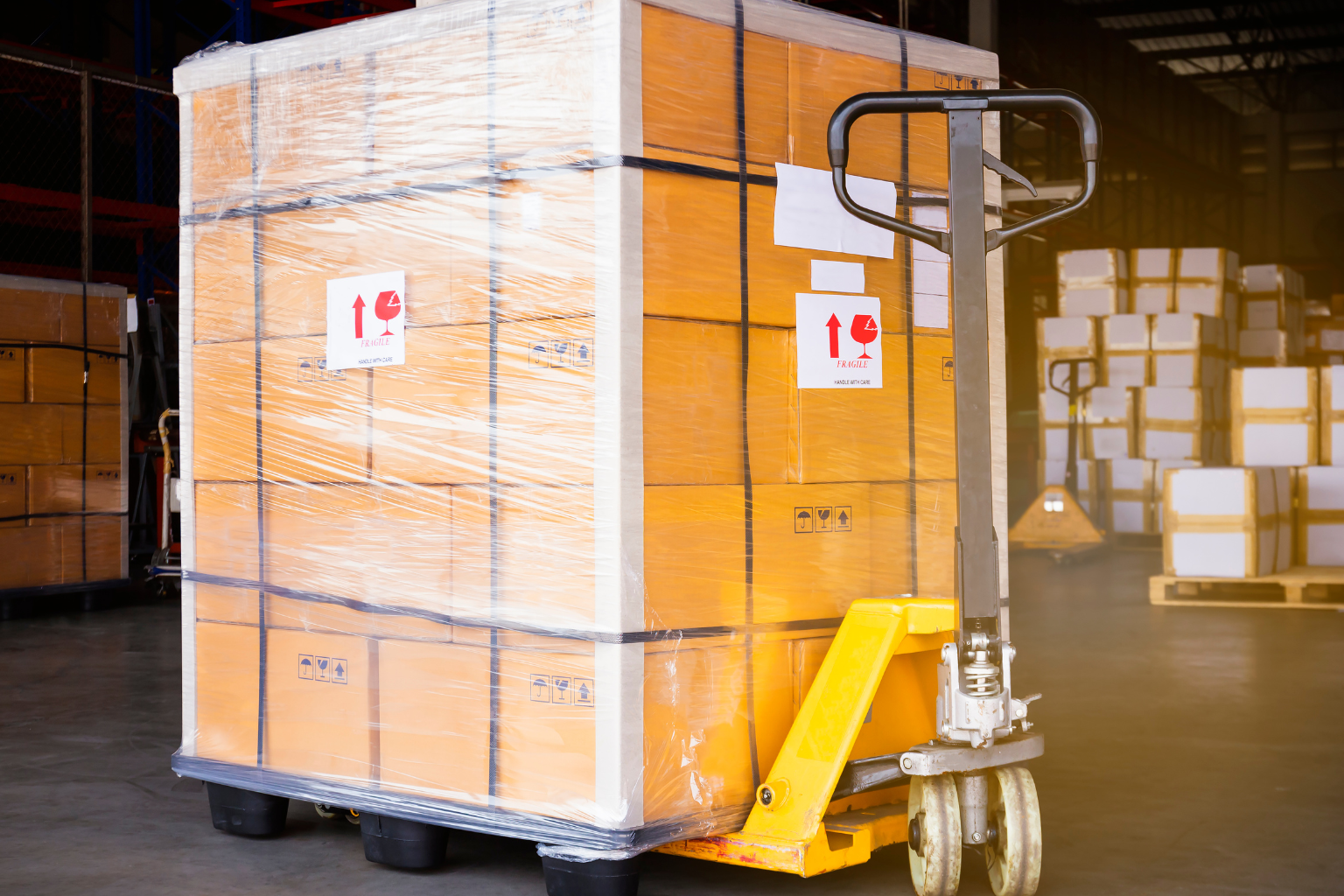Understanding the UPS High-Value Goods Fee
If you’re in the business of shipping high-value goods, you may have come across the UPS High-Value Goods Fee. This fee is charged by UPS to ensure the safe handling and delivery of high-value packages. In this article, we’ll explore the ins and outs of the UPS High-Value Goods Fee, including what it is, how much it costs, and how you can avoid it. By the end of this article, you’ll be equipped with the knowledge you need to make informed decisions about shipping your high-value items with UPS.
What is the UPS High-Value Goods Fee?
The UPS High-Value Goods Fee is a surcharge applied to packages that contain items of significant monetary or sentimental value. This fee helps UPS cover the additional risk and security measures required when handling and transporting high-value goods. The fee is applicable in addition to standard shipping costs and varies based on the declared value of the items being shipped.
According to UPS's official guidelines, any package with a declared value of $1,000 or more is subject to this fee. Accurate declaration of the item's value is crucial to ensure proper handling and to avoid delays or additional charges.
Why is the High-Value Goods Fee Important?
Shipping valuable goods involves inherent risks such as theft, damage, or loss. The High-Value Goods Fee allows UPS to implement enhanced security measures, including specialized handling procedures, increased monitoring, and secure transportation methods. By paying this fee, shippers can have peace of mind knowing that their valuable items are being managed with the utmost care.
Additionally, the fee supports UPS in providing comprehensive insurance options for high-value shipments. This ensures that in the event of any issues during transit, the value of the goods is protected. For more details on UPS insurance options, visit the UPS Insurance Information page.
Criteria for High-Value Goods
UPS defines high-value goods as any package with a declared value of $1,000 or more. This includes, but is not limited to:
- Jewelry and precious metals
- Electronic devices and high-end gadgets
- Artwork and antiques
- Designer clothing and luxury accessories
- Medical equipment and pharmaceuticals
- Family heirlooms and irreplaceable items
It's essential to accurately declare the value of these items to ensure they receive the necessary care and protection during transit.
Cost Structure of the UPS High-Value Goods Fee
The cost of the UPS High-Value Goods Fee is determined by the declared value of the package. Typically, the fee is calculated as a percentage of the item's value, with a minimum charge applicable. For instance, as of 2023, UPS may charge approximately 0.625% of the declared value, resulting in a minimum fee of $10 for packages valued at $1,000.
However, the exact percentage and minimum fee can vary based on factors such as the destination country and the type of shipping service selected. For the most accurate and up-to-date information, refer to the UPS High-Value Goods Fee page.
Impact on Total Shipping Costs
The High-Value Goods Fee can significantly increase the total cost of shipping, especially for packages with high declared values. For example, shipping a package valued at $50,000 could incur a fee of approximately $312.50 using the aforementioned rate.
In addition to the High-Value Goods Fee, shippers may also need to consider other costs such as standard shipping fees, insurance, and potential customs duties for international shipments. It's advisable to factor in all these expenses when budgeting for shipping high-value items.
Strategies to Mitigate the High-Value Goods Fee
While the High-Value Goods Fee is designed to cover the additional risks associated with shipping valuable items, there are strategies to minimize its impact:
- Evaluate Shipping Alternatives: Consider using other carriers that may offer competitive rates or different fee structures for high-value shipments.
- Optimize Declared Value: Ensure that the declared value accurately reflects the item's worth without being unnecessarily inflated.
- Leverage Insurance: Sometimes, investing in comprehensive insurance can provide better coverage and potentially lower overall costs compared to the High-Value Goods Fee alone.
- Negotiate with UPS: For businesses with high shipping volumes, it may be possible to negotiate reduced fees or preferential rates through a dedicated UPS account manager.
Always consult with a UPS representative to explore available options tailored to your shipping needs.
Common Misconceptions About the High-Value Goods Fee
There are several misconceptions surrounding the UPS High-Value Goods Fee:
- Fee Based on Weight: The fee is often misconceived to be based on the package's weight. In reality, it is determined by the declared value of the contents.
- International Only: While international shipments are subject to the fee, domestic shipments with declared values exceeding $1,000 also incur the High-Value Goods Fee.
- Specific Item Types: The fee applies to any item with a declared value of $1,000 or more, regardless of the category or type of goods.
Understanding these misconceptions can help shippers better navigate the fee structure and make informed decisions.
The Role of Insurance in High-Value Shipments
Insurance plays a crucial role in protecting high-value shipments. While the High-Value Goods Fee covers some aspects of security and handling, it is not a substitute for comprehensive insurance coverage.
UPS offers various insurance options that can be tailored to the specific needs of the shipment. These options provide additional financial protection in cases of loss, damage, or theft. For more information on UPS insurance services, visit the UPS Insurance Information page.
Proper packaging is also vital in mitigating risks associated with shipping high-value items. Ensure that items are securely packed using appropriate materials and that packages are clearly labeled as fragile if necessary.
Tips for Safely Shipping High-Value Goods with UPS
To ensure the safe transport of high-value goods, consider the following tips:
- Use Secure Packaging: Invest in sturdy boxes and high-quality packing materials to protect items from damage during transit.
- Accurate Declaration: Declare the true value of the items to ensure appropriate handling and insurance coverage.
- Choose Reliable Shipping Services: Opt for UPS services that offer tracking and secure handling, such as UPS Signature Tracking or UPS Proactive Response Secure.
- Insure Your Shipment: Purchase additional insurance to cover the full value of the items, providing peace of mind in case of unforeseen events.
- Consult UPS Representatives: Engage with UPS customer service or your account manager to discuss the best practices and services for shipping your high-value goods.
Implementing these strategies can significantly reduce the risks associated with shipping valuable items and ensure their safe delivery.
Comparing UPS's High-Value Goods Fee with Other Carriers
When selecting a shipping carrier for high-value goods, it's essential to compare the fee structures and services offered by different providers. Here's a brief comparison:
- FedEx: Similar to UPS, FedEx charges additional fees for high-value shipments, often referred to as declared value. Their fee structure may differ in percentage and minimum charges.
- DHL: DHL also imposes surcharges for valuable items, with specific guidelines and insurance options tailored to high-value shipments.
- USPS: The United States Postal Service offers insurance for high-value items, but their fee structure and coverage limits differ from private carriers like UPS.
It's advisable to review each carrier's policies and consult with their representatives to determine the most cost-effective and secure option for your high-value shipments.
The Future of the UPS High-Value Goods Fee: Trends and Updates
As e-commerce and the shipment of high-value goods continue to grow, UPS may update its High-Value Goods Fee policies to adapt to changing market demands and security considerations. Future trends may include:
- Enhanced Security Measures: Implementation of advanced tracking and security technologies to further protect high-value shipments.
- Flexible Fee Structures: Introduction of tiered fee structures based on shipment frequency, value ranges, or customer loyalty.
- Integrated Insurance Solutions: Offering bundled services that combine the High-Value Goods Fee with comprehensive insurance packages for streamlined protection.
To stay informed about any changes to the High-Value Goods Fee, regularly consult the UPS High-Value Goods Fee page or speak directly with a UPS representative.
Conclusion
In conclusion, the UPS High-Value Goods Fee is a crucial consideration for anyone shipping valuable items. Understanding the criteria, cost structure, and impact of this fee allows shippers to make informed decisions and implement strategies to manage shipping costs effectively. By leveraging comprehensive insurance, secure packaging, and selecting appropriate shipping services, you can ensure the safe and cost-effective transport of your high-value goods with UPS.




















